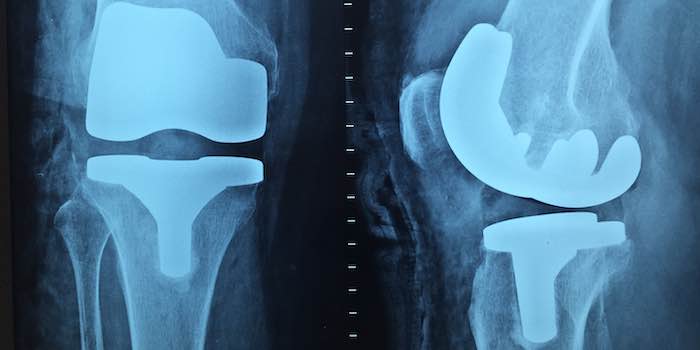By W. Gifford-Jones, MD and Diana Gifford-Jones ——Bio and Archives--November 4, 2023
Health and Medicine | CFP Comments | Reader Friendly | Subscribe | Email Us

When osteoarthritis in the knee is causing you pain, how do you know whether to hang in there and take it or to accept the risks of going under the knife in hopes of bouncing back stronger? It’s not an easy question. Many factors need to be part of the decision.
Osteoarthritis (OA) is the most common form of arthritis, often described as a “wear and tear” problem, and usually found in the knees, hips and hands. Symptoms are usually mild initially – stiff joints and reduced flexibility. It gradually progresses to more noticeable swelling and aching caused by the breakdown of joint cartilage and the underlying bone.
According to the Centres of Disease Control and Prevention, over 32 million Americans have OA. The Arthritis Society Canada says about 1 in 5 Canadians have the condition.
Unfortunately, there’s no cure. But treatment options include physiotherapy, acupuncture, massage, and adaptations at home and work to decrease stress to affected joints. OA medications range from common acetaminophen to topical creams containing non-steroidal anti-inflammatory drugs to corticosteroid injections.
But what about surgery? The decision depends on the severity of OA progression, the amount of pain, and careful consideration of surgical risks. As surgical techniques and artificial joint replacement parts have improved, advanced age is becoming less of a concern. People in their nineties. “There is no age cutoff for joint replacement,” says orthopedic surgeon, Dr. Nicolas Piuzzi of the Cleveland Clinic. “Studies have found that people in their 80s and 90s benefit from hip or knee replacement as much as younger people.”
That’s the good news. But if you think you are a candidate for joint replacement surgery to treat OA, you need to consider other aspects of your overall health. It’s the post-operative period that can be the toughest part of surgery from the patient’s point of view. People with obesity, high blood pressure, and other risk factors associated with cardiovascular disease are more likely to have problems recovering from the surgery.
If there is little pain, think twice about surgery. But if you are getting ready, the first thing is to lose extra weight. A close second is to maintain physical activity to the extent possible. Third, make sure you have a plan, developed jointly with your doctor, for support in rehabilitation after surgery. Try to create a habit of setting aside time for this rehabilitation long before the operation. It will be easier to continue a routine than to start a new one.
Is there a way to slow the progression of AO so that surgery can be
avoided? Caring for your cartilage – the tough coverings at the ends of
bones – is the goal. Researchers are studying the potential for two
nutritional supplements – glucosamine and chondroitin sulfates – to
treat OA. According to the Arthritis Foundation, “An analysis of 41
animal and human studies, including 25 clinical trials, found that
collagen benefited OA and aided cartilage repair, no matter what the
dose, type or brand of collagen.”
Always remember, there is no such thing as minor surgery, but there are a lot of minor surgeons. Make sure you get referred to a surgeon who specializes in the procedure you need, preferably at a hospital having a department dedicated to orthopedic surgery. Check with acquaintances who have had the same surgery to learn who performed it and how it went – before, during, and afterwards.
For readers beginning to worry about these problems, get into prevention. OA can be a hereditary condition. If there is a family history of AO, maintain a healthy weight and be active with moderate exercise.
Sign-up at [url=http://www.docgiff.com]http://www.docgiff.com[/url] to receive our weekly e-newsletter. For comments, contact-us@docgiff.com. Follow us on Instagram @docgiff and @diana_gifford_jones.
View Comments
W. Gifford-Jones, MD is the pen name of Dr. Ken Walker, graduate of Harvard Medical School. Diana Gifford-Jones is his daughter, a graduate of Harvard Kennedy School. Their latest book, “No Nonsense Health” is available at: Docgiff.com
Sign-up at DocGiff to receive our weekly e-newsletter. For comments, .(JavaScript must be enabled to view this email address). Follow our new Instagram accounts, @docgiff and @diana_gifford_jones
.